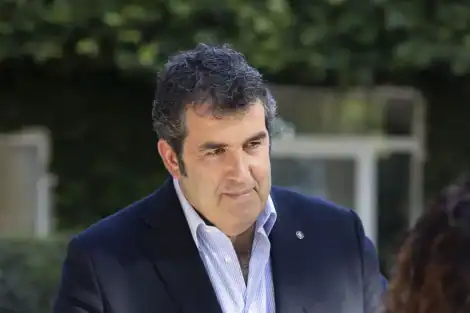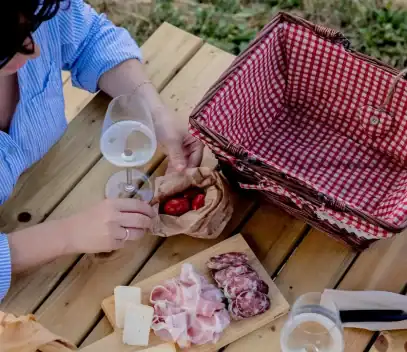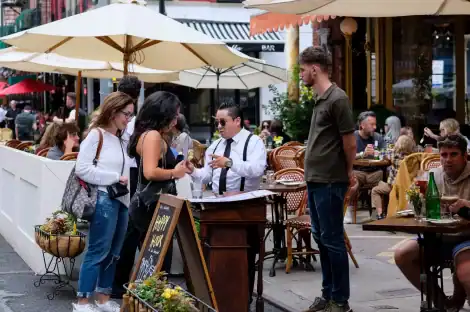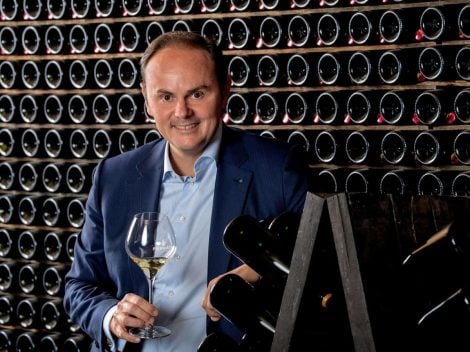Born in 1985. Distinguishing features? Extremely passionate, determined, meticulous. Just look at the incredibly detailed information he provides on his wine labels. Stef Yim's story spans different continents and professions; since 2016, he has been settled in the small town of Randazzo on Mount Etna. He lives in his winery, Sciara, surrounded by Nerello Mascalese vines from Contrada Taccione. From his eight plots, totaling 5.9 hectares, he produces about 12,000 bottles: the six labels share character and originality in taste. The vines are old, and yields are very low.
How did your passion for wine begin?
I grew up in Los Angeles; my father is from Hong Kong, where I was born, and my mother is Japanese. When I was nine, we moved to California, and I started working at a young age in bars in Pasadena and later as a sommelier and restaurant manager. You know, the typical life of the wine industry; every night, I went to bed at 3 am. I was looking for an escape, especially since I had gotten married in the meantime.
So you ventured into winemaking
Actually, I didn't want to make wine. It was purely by coincidence. For my restaurant work, I made purchases and tasted a lot. One day, I found myself at an event called the Family Winemakers. I was looking for atypical Californian wine: less alcoholic, rich, and structured. I tasted a wine that blew me away, with only "3,000" written on the label and nothing else. It indicated the altitude in feet, which is just over 900 meters. It was a Syrah from Northern California, and I didn't even know they produced wine at those altitudes in the area. I ordered several cases, but they never arrived at my restaurant.
An exciting start with high altitude
The following year, I returned to the Family Winemakers event in Pasadena, where I worked. As I was about to leave, I tasted an incredible wine that reminded me of that "3,000," with the same sensations. I told the producer, John Fore, and found out that label was produced with his grapes on Cobb Mountain, one of the highest vineyards in California. We immediately became friends, went for a drink, and at the first opportunity, I visited his vineyard, surrounded by wonderful volcanic soils. The meeting changed my life. He had grapes for sale and offered them to me. I knew nothing, but I took the plunge, and one of his friends guided me. That's how I started.
Did you have prior experience with wines produced on volcanoes?
Since my time as a sommelier, blind tastings always made volcanic origin wines stand out to me. They have such an original, elegant stamp; they are unique. I've always traded in wine. I realize I need to improve a lot as a producer, so I move to France to train in the southeast of the country. I learn a lot, so I decide to start my venture in Tenerife, in the Canary Islands. Of course, volcanic soils. But it doesn't work; the lack of seasons and excursions takes its toll, air connections are limited, and the food isn't exactly stimulating like in Italy. I give up.
When did the moment for Etna arrive?
At the end of 2015, I found a small plot in Randazzo at almost 1,000 meters above sea level, closed the deal in a few days, and gradually started collecting a series of tiny plots with different soils and characteristics, just as I wanted. They're almost all smaller than a hectare and from very old vines.
Why Mount Etna?
I have always studied the effects of global warming, and I knew that it would become increasingly challenging for agriculture. I understood that I had to go up high to produce elegant wines with the right acidity and pH to make them age well. From this perspective, Etna is a continuous surprise. And then, the volcanic soil, these landscapes, there's no place like it in the world.
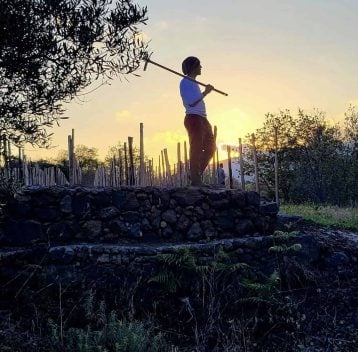
Are you the only one on Etna to name wines based on altitude?
Altitude is crucial. I started with 750 meters, but then I changed to 760 because they confused the altitude with the quantity of the bottle; they told me it wasn't necessary to write it, we know. I produce it from Contrada Sciaranova and now also Petrone. Then there's the 980 meters, Contrada Carana, Monte Dolce, which I always like more, and Barbabecchi; we're below the Magma vineyard. Here, there's more tannin and a dark character. They told me I wouldn't find anything above 1,100 meters, but they were wrong. The 1200 Meters comes from a very old pre-phylloxera Grenache vineyard in Contrada Nave. And then there's the Centenario, a handful of bottles from very old pre-phylloxera vines in Contrada Feudo di Mezzo. And some experimental labels that I change every year to understand the limits.
Are you a proponent of single vineyard at all costs?
I started with that idea, but then I realized that each vintage tells its own story. Sometimes the concert is perfect with a single voice; sometimes I need a quartet to play the symphony and have new perspectives. I evaluate each case.
Do you want to plant even higher?
Actually, I've already done it. They tell me I'm crazy, that the grapes won't ripen, but the more they criticize me, the more they motivate me. During the pandemic, I found a plot at 1,500 meters in Adrano, on the south side of Etna. They only grew plums, but I'm sure it's very suitable. With three people, all by hand, we worked hard to plant 4,500 vines. Red berries, but I won't tell you the variety.
Is high altitude really the future?
It would be too simple, but just look at the 2023 harvest. I lost the grapes from 760 Meters and Centenario, which are at about 650 meters. Only 15% was saved from those vineyards, to be honest. While above 900 meters, I am very happy; we had minimal losses, less than 20%. It must mean something.
Who are your role models?
The person who inspired me in Italy, since 2012, is Enzo Poroni, the owner of Miani in Veneto. He's a hero to me. Probably number one on my list; he doesn't produce wines, he forges them. He has an immense passion for detail, tailoring work on individual barrels and microclimates for different stories. He has been a true guide.
And on Etna?
I have to thank Salvo Foti's work for 20 years, the contribution of Frank Cornelissen, and that of Benanti. They gave new life to these lands; think about the work of Andrea Franchetti and Marc de Grazia. They shaped the image of Etna and brought it around the world. Today, everything is easier. Without these people, there wouldn't be Etna as we know it. And I wouldn't be here. Producing wines like "Ubriaco sulla luna" (Drunk on the Moon).
Haha. Every year I create a separate label. In 2021, it was "Ubriaco sulla luna" (Drunk on the Moon). First, there was "Ululando alla luna" (Howling at the Moon), "Lacrima di Luna" (Tears of the Moon), and "Acqua di Luna" (Water of the Moon). Basically, I love the moon, and Etna reminds me of it. I often follow lunar cycles for vineyard activities; the moon is not just charming but has a direct influence. Yes, even the taste of the wine has to do with the moon.
How were you received?
Sicilians have the gift of hospitality; they are passionate and empathetic. I feel warmth from the heart that is different. I felt very good. At the beginning, there was some skepticism from some people. There aren't many Asians around here.
No problems?
The real troubles were caused by birds. They eat 10% of my grapes every year, not to mention wild boars. I installed sophisticated cannons to scare them, but in the mountains, there are many greedy animals. I have to account for the loss.
Where is Etna's wine going? Is there a common path among producers?
I believe that Etna is and will always be a plurality of styles. It's in its nature. Everyone makes wines with different interpretations and philosophies; there's no codified style, whether in white or red. And precisely because of this, each wine is so unique; these slopes and microclimates offer infinite possibilities. I don't see it as a disadvantage but as a great opportunity. Etna is an open-air laboratory; that's the attraction for consumers.
Some of your wines cannot receive the DOC because the vineyards are too high. Is it time to reconsider the regulations?
I'm so stupid that I've been self-reporting since day one by prominently writing the altitude of the vineyards on the labels. Today, above 850 meters, I can't have the DOC; there are rules, and they must be respected. It's not a problem because people don't pay much attention to the label but think about the content. I believe that in the future, the maximum threshold will change, but it will take a long time. Surely, many producers don't declare the altitude of the grapes of origin.
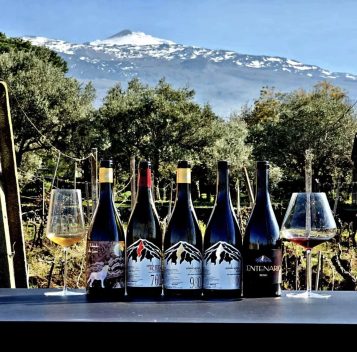
Do you consider yourself a natural wine producer?
No. Everything I've done from day one in the vineyard is natural; I don't use chemicals, only spontaneous fermentations. Since this year, we are also certified organic. But what does natural wine mean? Even just checking the vineyard yields isn't natural, just as I don't believe in zero-sulfur wines. If I have to send a wine to the other side of the world, I have to add some sulfites to protect it. And I don't want my wines to taste like kombucha; there are quite a few out there that glorify things I don't like, but to each his own. For me, the most important thing is cleanliness, hygiene; I'm obsessed. I invite you to visit my micro-winery.
Do you get bored in Randazzo, being someone accustomed to metropolises?
The most challenging thing was the language; hello and goodbye may not be enough. But I'm always busy at work and do everything to reach my goals. I think I made the right choice. Every now and then, I wonder where the heck I ended up. But it's a luxury, like traveling around the world with these wines.
Where do you sell?
Sixty-five percent is abroad, especially in Japan, Hong Kong, and Thailand. Thanks to events with the gambero (gambero is Italian for shrimp), I expanded to Sweden and Denmark. But Italy also gives me great satisfaction. I'm very happy with the feedback received. I don't want to increase production because otherwise, I lose control; I have to grow in quality and consistency.
Azienda Agricola Sciara (Sciara Volcanic Winery)
Contrada Taccion SS120 Km 189 + 700
Randazzo (CT)
The tasting
Etna Rosso 760 Meters 2021 Sciara
89
Contrada Sciaranuova and Taccione. The aromas are clear and fragrant, with a beautiful floral background intertwining tones of blackberries, myrtle, and rosemary. The palate is particularly juicy, with dark and fleshy fruit, good extension, and immediate pleasantness. The finish is harmonious and finely spicy, combining freshness with a warmer and more mature register. It matures for 19 months in tonneaux and then glass. 4100 bottles.
980 meters 2019
94
Ascending in altitude, we encounter the legendary Contrada Barbabecchi, Carrana, and Monte Dolce. It captivates with a fine and sinuous balsamic character, featuring juniper, fennel, and thyme, along with a darker undertone of licorice. The palate is enveloping, with a wonderful sense of lightness combined with plenty of flavor and depth. The finish dances between red fruit, green tea, and pomegranate. After twenty minutes, it sings in the glass. "No clarification – filtration with 10-micron cartridges," when transparency is mentioned on the label. 3206 bottles.
1200 Meters 2021
90
"Production: 1486 kg." We are in Contrada Nave; in this case, the wine matures in an amphora for 19 months. The aromas are very dark, strong suggestions of black tea, coffee, and rhubarb. The palate is still compressed, highly original in the aromatic profile, with notes of friggitelli and medicinal herbs. A decisive attack, then the palate's course is more relaxed for a very particular rhythmic and rhythmic progression. The finish is profoundly savory and faceted. 1390 bottles.

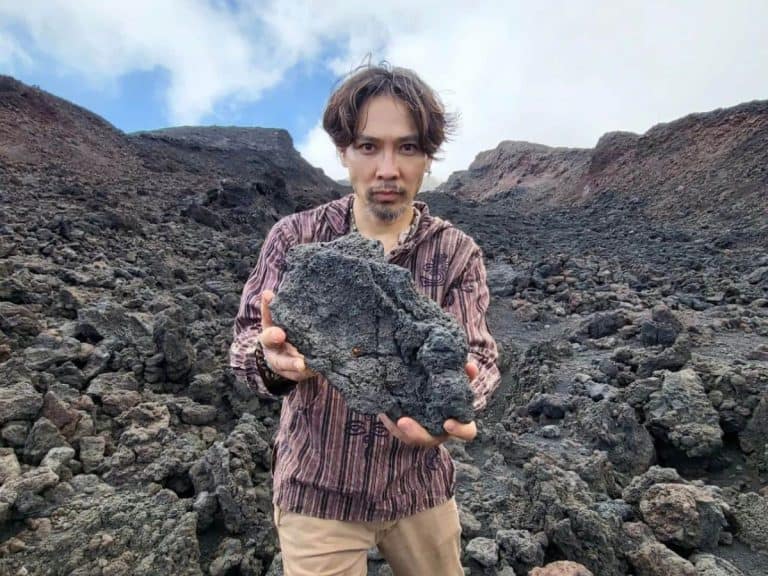
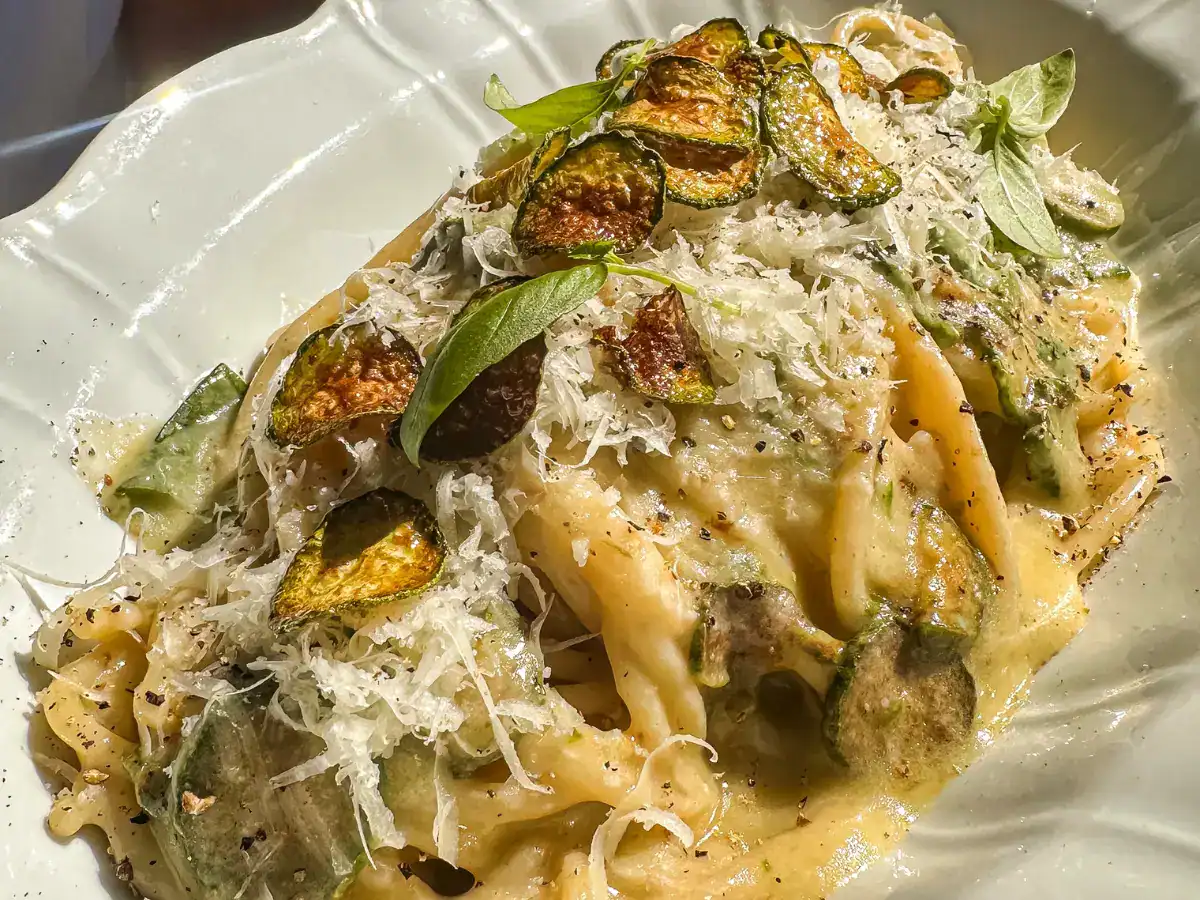 All the secrets to making perfect Pasta alla Nerano at home
All the secrets to making perfect Pasta alla Nerano at home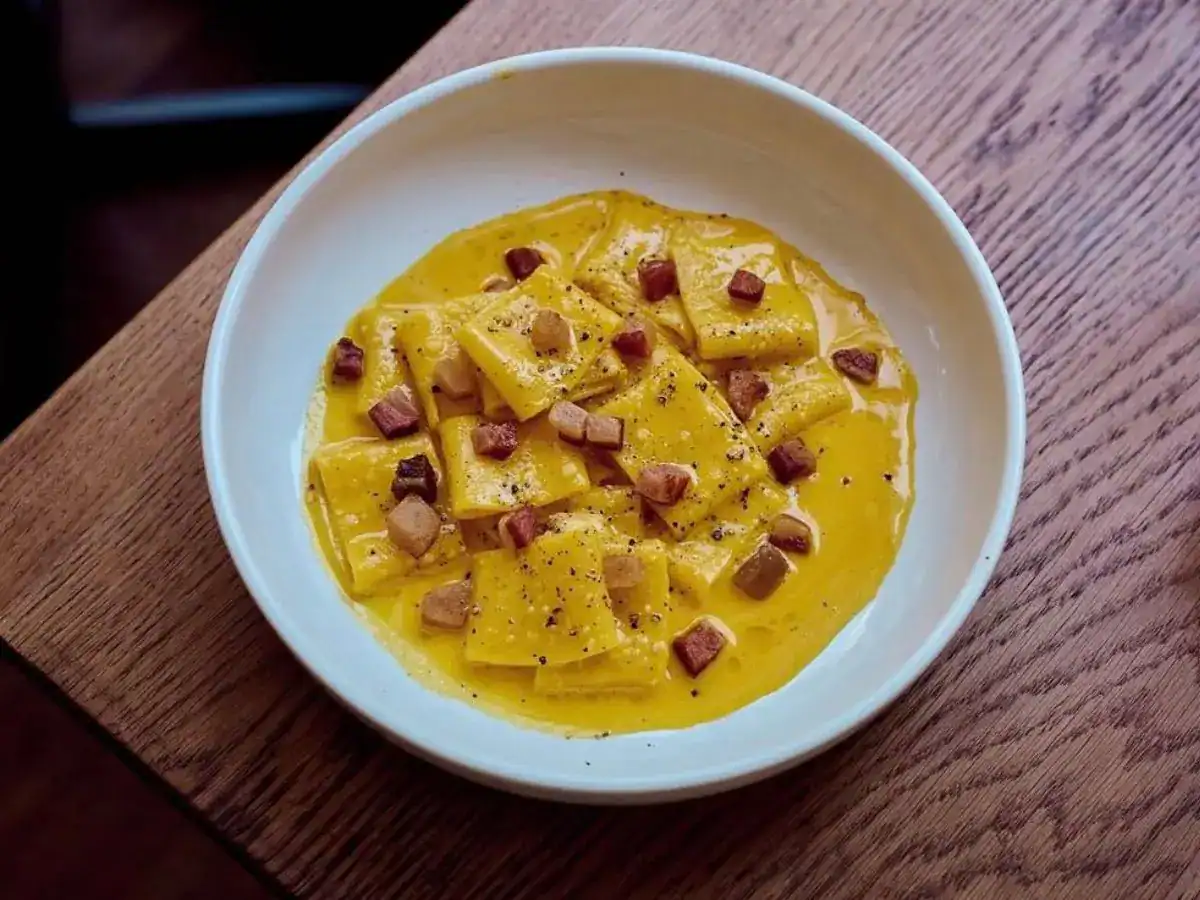 A trattoria inspired by Pipero’s carbonara opens in London
A trattoria inspired by Pipero’s carbonara opens in London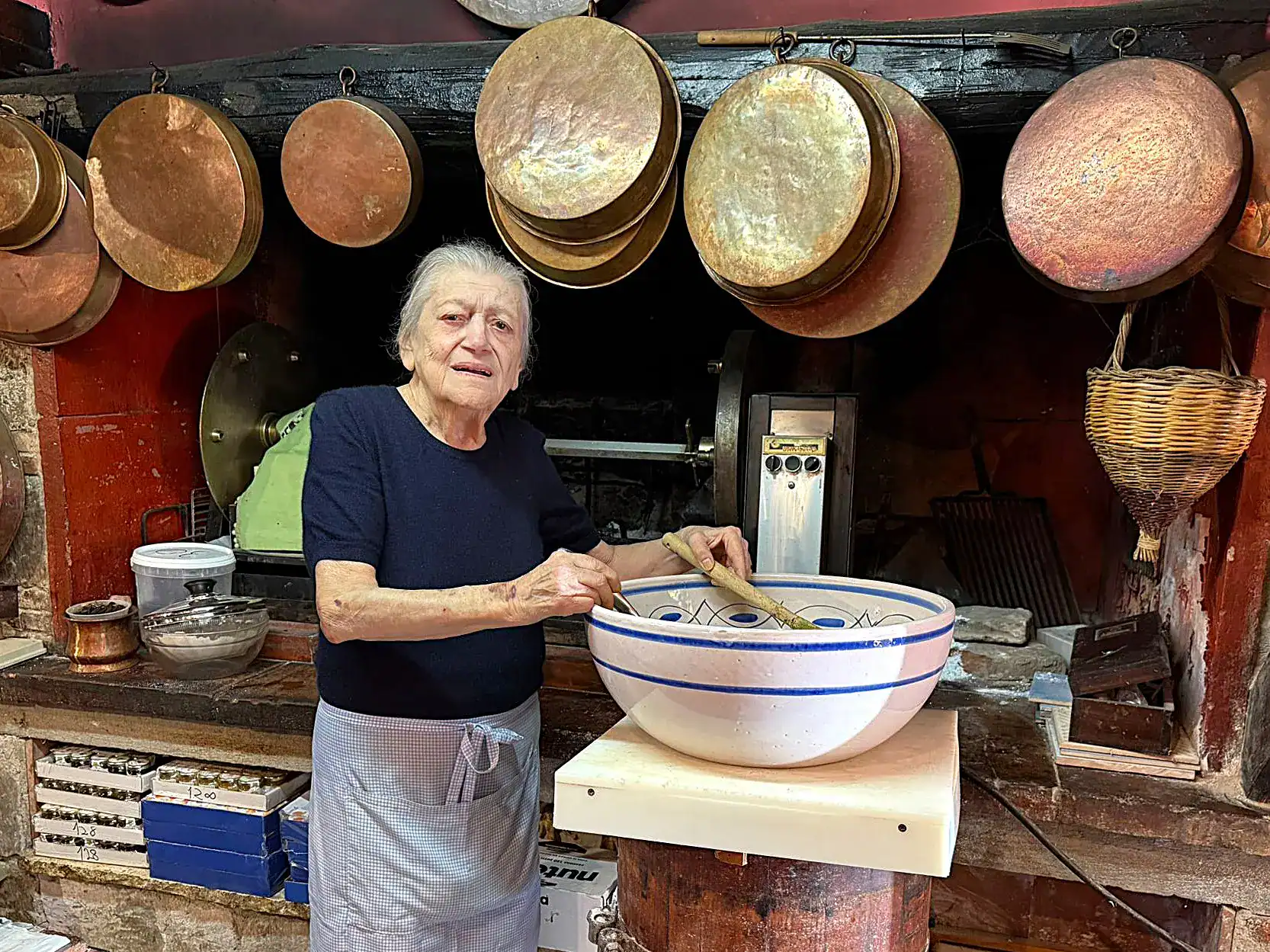 At 86, she still makes limoncello the old-fashioned way: the recipe from a restaurant on the Sorrento coast
At 86, she still makes limoncello the old-fashioned way: the recipe from a restaurant on the Sorrento coast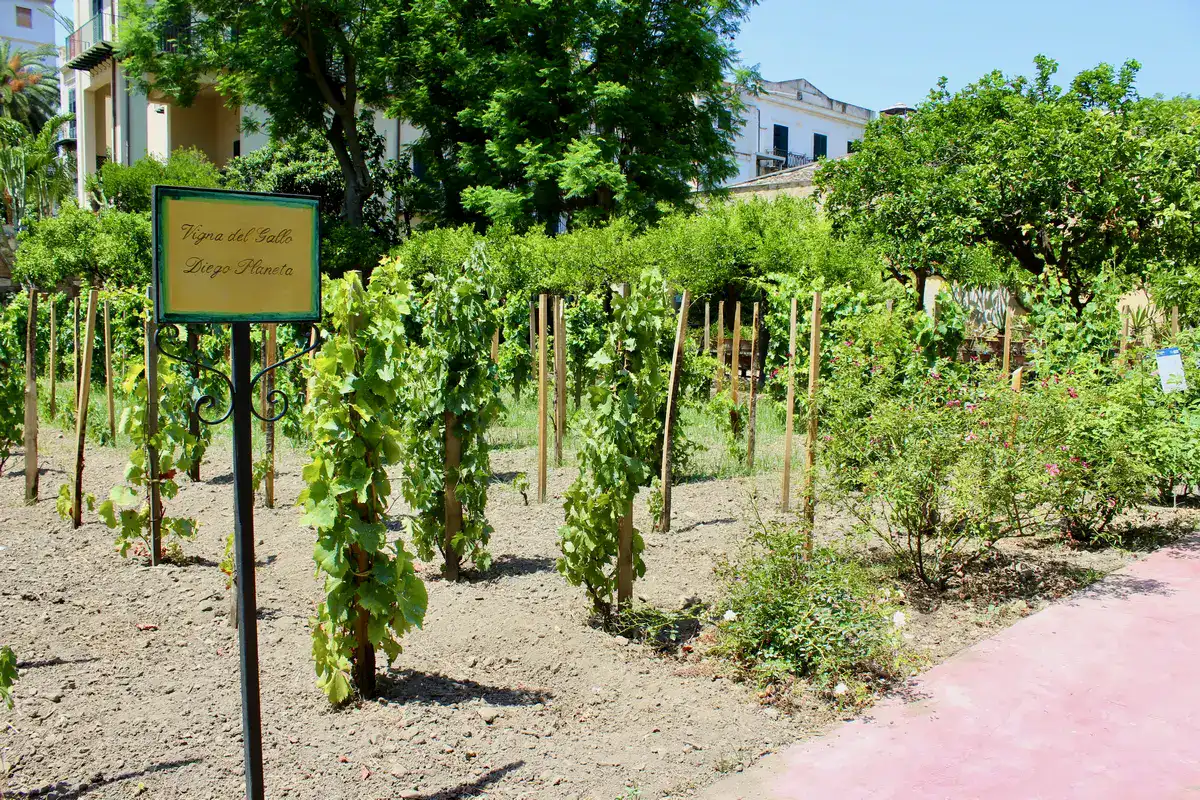 There is a vineyard-laboratory in the heart of Palermo that is becoming a regular stop for scholars and tourists
There is a vineyard-laboratory in the heart of Palermo that is becoming a regular stop for scholars and tourists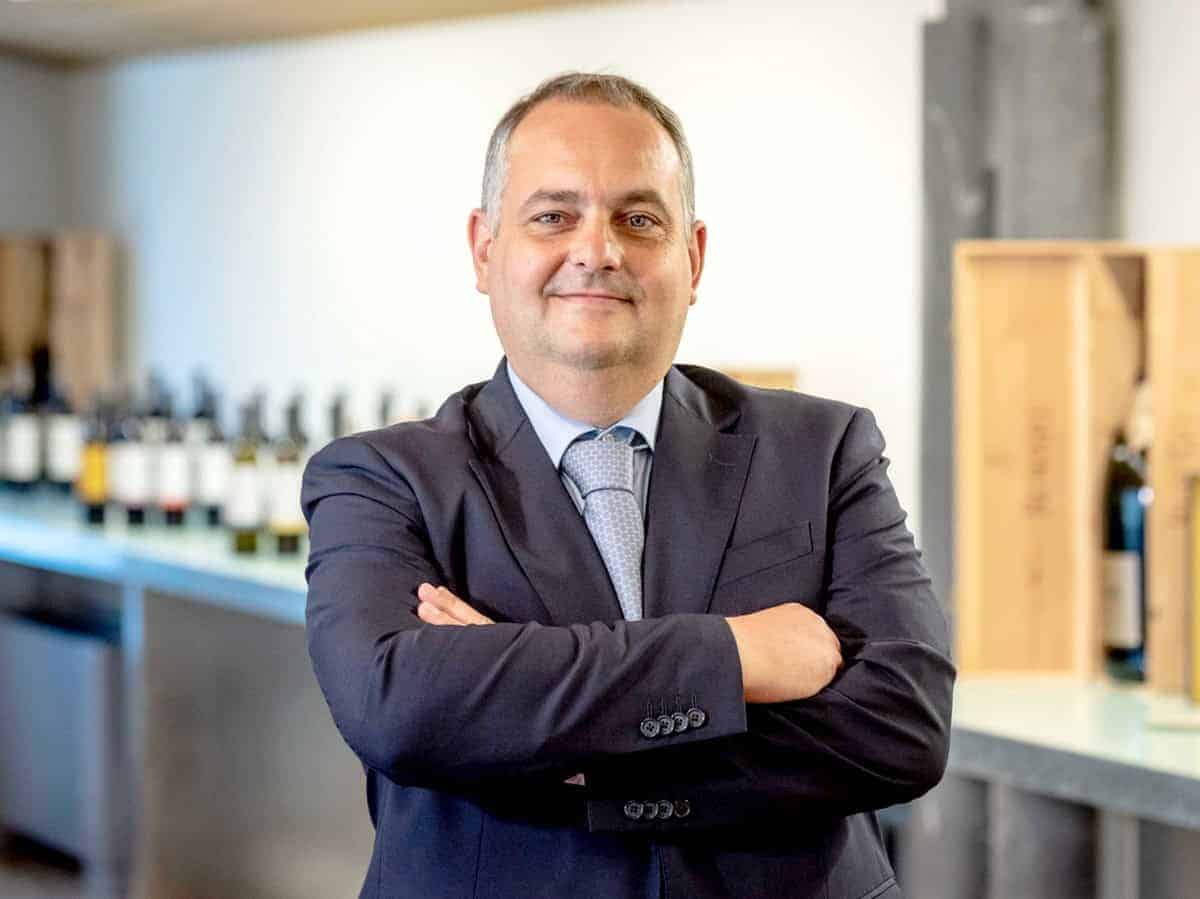 “A 30% tariff is unsustainable – but it’s consumers who will pay the most.” Francesco Giovannini of Mezzacorona issues warning
“A 30% tariff is unsustainable – but it’s consumers who will pay the most.” Francesco Giovannini of Mezzacorona issues warning